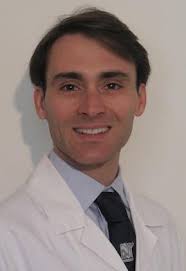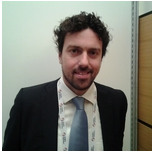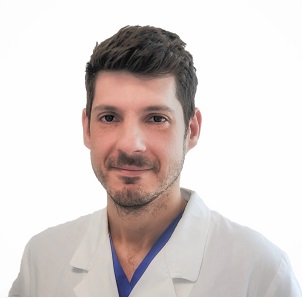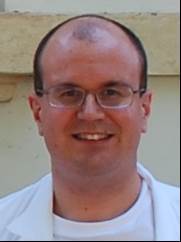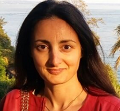Studying at the University of Verona
Here you can find information on the organisational aspects of the Programme, lecture timetables, learning activities and useful contact details for your time at the University, from enrolment to graduation.
Academic calendar
The academic calendar shows the deadlines and scheduled events that are relevant to students, teaching and technical-administrative staff of the University. Public holidays and University closures are also indicated. The academic year normally begins on 1 October each year and ends on 30 September of the following year.
Course calendar
The Academic Calendar sets out the degree programme lecture and exam timetables, as well as the relevant university closure dates..
| Period | From | To |
|---|---|---|
| INF VI 1° ANNO 1° SEM | Oct 5, 2020 | Dec 22, 2020 |
| INF VI 2° ANNO 1° SEM | Oct 5, 2020 | Dec 22, 2020 |
| INF VI 3° ANNO 1° SEM | Oct 12, 2020 | Dec 22, 2020 |
| INF VI 1° ANNO 2° SEM | Feb 1, 2021 | Apr 2, 2021 |
| INF VI 3° ANNO 2° SEM | Feb 8, 2021 | Apr 2, 2021 |
| INF VI 2° ANNO 2° SEM | Apr 19, 2021 | Jun 25, 2021 |
| Session | From | To |
|---|---|---|
| INF VI - sessione invernale | Jan 7, 2021 | Jan 29, 2021 |
| INF VI - sessione estiva 3° anno (1^ parte) | Apr 6, 2021 | Apr 16, 2021 |
| INF VI - sessione estiva 1° anno (1^ parte) | Apr 6, 2021 | Apr 22, 2021 |
| INF VI - sessione estiva 2° anno | Jul 5, 2021 | Jul 30, 2021 |
| INF VI - sessione estiva 1° anno (2^ parte) | Jul 12, 2021 | Jul 30, 2021 |
| INF VI - sessione estiva 3° anno (2^ parte) | Jul 19, 2021 | Jul 30, 2021 |
| INF VI - sessione autunnale | Sep 1, 2021 | Sep 30, 2021 |
| Session | From | To |
|---|---|---|
| SESSIONE AUTUNNALE | Oct 1, 2021 | Nov 30, 2021 |
| SESSIONE PRIMAVERILE | Mar 1, 2022 | Apr 30, 2022 |
| Period | From | To |
|---|---|---|
| FESTIVITA' OGNISSANTI | Nov 1, 2020 | Nov 1, 2020 |
| FESTIVITA' IMMACOLATA CONCEZIONE | Dec 8, 2020 | Dec 8, 2020 |
| VACANZE DI NATALE | Dec 24, 2020 | Jan 3, 2021 |
| VACANZE DI PASQUA | Apr 4, 2021 | Apr 5, 2021 |
| FESTIVITA' DELLA LIBERAZIONE | Apr 25, 2021 | Apr 25, 2021 |
| FESTIVITA' DEL LAVORO | May 1, 2021 | May 1, 2021 |
| Santo Patrono Vicenza | Sep 8, 2021 | Sep 8, 2021 |
| Description | Period | From | To |
|---|---|---|---|
| INF VI - tirocinio 2° anno 1^ esp | INF VI - tirocinio 2° anno 1^ esp | Feb 1, 2021 | Mar 5, 2021 |
| INF VI - tirocinio 2° anno 2^ esp | INF VI - tirocinio 2° anno 2^ esp | Mar 15, 2021 | Apr 23, 2021 |
| INF VI - tirocinio 3° anno 1^ esp | INF VI - tirocinio 3° anno 1^ esp | Apr 19, 2021 | May 28, 2021 |
| INF VI - tirocinio 1° anno 1^ esp | INF VI - tirocinio 1° anno 1^ esp | Apr 26, 2021 | May 28, 2021 |
| INF VI - tirocinio 3° anno 2^ esp | INF VI - tirocinio 3° anno 2^ esp | Jun 7, 2021 | Jul 16, 2021 |
| INF VI - tirocinio 1° anno 2^ esp | INF VI - tirocinio 1° anno 2^ esp | Jun 7, 2021 | Jul 9, 2021 |
| INF VI - tirocinio 2° anno 3^ esp | INF VI - tirocinio 2° anno 3^ esp | Sep 1, 2021 | Oct 1, 2021 |
| INF VI - tirocinio 3° anno 3^ esp | INF VI - tirocinio 3° anno 3^ esp | Sep 1, 2021 | Oct 8, 2021 |
Exam calendar
Exam dates and rounds are managed by the relevant Medicine Teaching and Student Services Unit.
To view all the exam sessions available, please use the Exam dashboard on ESSE3.
If you forgot your login details or have problems logging in, please contact the relevant IT HelpDesk, or check the login details recovery web page.
Should you have any doubts or questions, please check the Enrollment FAQs
Academic staff
 maribedin@libero.it
maribedin@libero.it
 michele.bertani@univr.it
michele.bertani@univr.it
Cunico Laura
 laura.cunico@univr.it
laura.cunico@univr.it
 chiara.gnata@libero.it
chiara.gnata@libero.it
 jessica.longhini@univr.it
jessica.longhini@univr.it
 massimo.manfridi@univr.it
massimo.manfridi@univr.it
 loredana.pancheri@univr.it
loredana.pancheri@univr.it
 elda.righi@univr.it
elda.righi@univr.it
 rafaella.visona@univr.it
rafaella.visona@univr.it
Study Plan
The Study Plan includes all modules, teaching and learning activities that each student will need to undertake during their time at the University.
Please select your Study Plan based on your enrollment year.
1° Year
| Modules | Credits | TAF | SSD |
|---|
Professional Laboratories (1st year)
2° Year activated in the A.Y. 2021/2022
| Modules | Credits | TAF | SSD |
|---|
Professional Laboratories (2nd year)
3° Year activated in the A.Y. 2022/2023
| Modules | Credits | TAF | SSD |
|---|
Professional Laboratories (3rd year)
| Modules | Credits | TAF | SSD |
|---|
Professional Laboratories (1st year)
| Modules | Credits | TAF | SSD |
|---|
Professional Laboratories (2nd year)
| Modules | Credits | TAF | SSD |
|---|
Professional Laboratories (3rd year)
Legend | Type of training activity (TTA)
TAF (Type of Educational Activity) All courses and activities are classified into different types of educational activities, indicated by a letter.
Pathophysiology applied at Nursing (2020/2021)
The teaching is organized as follows:
INFERMIERISTICA CLINICA
Credits
3
Period
See the unit page
Location
VICENZA
Academic staff
See the unit page
Program
------------------------
MM: FARMACOLOGIA GENERALE
------------------------
GENERAL PRINCIPLES OF PHARMACOLOGY Definition of drug, medicinal product, generic drug, biosimilar, galenic and magistral preparations. Origin of drugs and the process of drug development. The market of drugs in Italy. Leaflet of drugs. Off-label use. International Classification System of drugs. Defined Daily Dose (DDD). Symptomatic, curative, preventive and substitutive drugs. Different actions of drugs: systemic or local, direct or indirect, primary or secondary, collateral, early or late onset. Pharmacokinetics: absorption (mechanisms, routes of administration, formulations), distribution (plasma protein binding, tissue vascularization, blood-brain barrier and placental transfer of drugs), biotransformation reactions and excretion of drugs. Pharmacokinetic parameters: bioavailability, volume of distribution, elimination half-life, clearance. Pharmacodynamics: general mechanisms of action, receptor definition, drug-receptor interaction, agonism and antagonism, affinity and intrinsic activity of drugs. ADVERSE DRUG REACTIONS AND TOXICOLOGY Clinical risks related to drug use: therapeutic errors and classification of adverse drug reactions. Pharmacovigilance: spontaneous reporting and the role of nurse. Drug dependence. Embryo-fetal toxicity. PHARMACOTHERAPY The concepts of risk/benefit and cost/benefit applied to drug treatments. “Placebo” and “Compliance” definitions. Dosage, maximum dose, effective dose, posology, therapeutic index. Therapeutic plasma levels of drugs, peak concentrations, therapeutic range, accumulation, toxic concentrations. Therapeutic drug monitoring. Drug interactions. Variability in drug response: therapeutic problems in neonates and children, elderly, patients with renal or hepatic insufficiency. Antimicrobial therapy: selective toxicity, spectrum of action, bacteriostatic and bactericidal activity, microbial resistance. Pharmacological characteristics and adverse effects of the most important groups of antibiotics, antifungals and antivirals. Non-steroidal antiinflammatory drugs and paracetamol.
------------------------
MM: SEMEIOTICA E FISIOPATOLOGIA
------------------------
------------------------
MM: INFERMIERISTICA CLINICA
------------------------
------------------------
MM: PATOLOGIA GENERALE
------------------------
Introduction to pathology • Cell homeostasis and alterations at the cell and organism levels • The concept of biochemical lesion and subcellular localization • Alteration of cell homeostasis: adaptation, necrosis, apoptosis, restoration of cell damage • Examples of cell adaptation: alterations of cells status and differentiation Causes of disease and mechanisms of cell damage • General classification of the causes of disease: genetic (example: cystic fibrosis), environmental, multifactorial (example: atherosclerosis), chemical (example: alcohol), radiation, free radicals • Mechanisms of healing Oedema: pathogenesis and classification Introduction to immunology and immunological damage • Innate and acquired immunity: description of leukocytes involved and general mechanisms • General features: antigen presentation, lymphocyte subclasses, complement • MHC ad transplants • Blood groups • Mechanisms of immuological damage: anafilaxis, complement activation, role of antibodies and Fc receptor, cell-dependent cytotoxicity Inflammation • Role of blood vessels in inflammation • Cells involved in inflammation • Classification of inflammatory response based on prevalent features: erithematous, serous, fibrinous, purulent, necrotic-haemorragic • Differences among acute and chronic inflammation • Cytokines and their role in the regulation of the inflammatory response Neoplasia • Differences among benign and malign neoplasms • Properties of neoplastic cells: growth, invasion and differentiation • General classification: epithelial, mesenchimal, neuroectodermal and germinal, hemopoietc cells neoplasms • Natural history of neoplasia: precancerous lesions, carcinoma in situ, metastasis. Preferential localization. TNM score. • Molecular basis of neoplastic transformation: oncogenes and tumor suppressor genes. Mechanisms of activation/inhibition. • Cancer etiology: physical, chemical and biological • Mechanism of damage: compression, paraneoplastic syndromes, cachexia • Cancer biomarkers and their clinical relevance
Bibliography
| Author | Title | Publishing house | Year | ISBN | Notes |
|---|---|---|---|---|---|
| G.M. Pontieri | Elementi di Patologia generale e Fisiopatologia generale (Edizione 4) | Piccin | 2018 | 978-88-299-2912-2 | |
| Marina Vanzetta Roberto Leone Maurizio Volterrani | Farmaci e infermiere. Un prontuario per la somministrazione | McGraw-Hill Education | 2013 | ||
| Taglialatela Conforti Cuzzolin Leone Mattioli Moretti Pignataro Vanzetta | Farmacologia per le lauree triennali e magistrali II Edizione (Edizione 2) | Sorbona | 2019 | ||
| Clark M.A., Finkel R., Rey J.A., Whalen K. | Le basi della farmacologia | Zanichelli | 2013 | 978-88-08-18864-9 | |
| Giovanni M. Pontieri | Patologia generale & fisiopatologia generale. Per i corsi di laurea in professioni sanitarie (Edizione 3) | Piccin | 2018 | 8829921424 |
Examination Methods
------------------------
MM: FARMACOLOGIA GENERALE
------------------------
Learning evaluation of General Pharmacology is made inside the written exam "Pathophysiology applied at Nursing": 15 questions are provided through multiple-choice (2 correct between 5) or semi-structured answers.
------------------------
MM: SEMEIOTICA E FISIOPATOLOGIA
------------------------
Quiz: multiple choices. Oral exam at request or if deemed appropriate by the commission .
------------------------
MM: INFERMIERISTICA CLINICA
------------------------
Oral exam after positive evaluation of a written test
------------------------
MM: PATOLOGIA GENERALE
------------------------
Quiz: multiple choices. Oral exam at request or if deemed appropriate by the commission .
Career prospects
Module/Programme news
News for students
There you will find information, resources and services useful during your time at the University (Student’s exam record, your study plan on ESSE3, Distance Learning courses, university email account, office forms, administrative procedures, etc.). You can log into MyUnivr with your GIA login details: only in this way will you be able to receive notification of all the notices from your teachers and your secretariat via email and soon also via the Univr app.
Gestione carriere
Orario lezioni
Si invitano gli studenti a prendere visione dei possibili aggiornamenti.
Indicazioni per l'iscrizione alla pagina moodle degli insegnamenti per il 1° anno
Si pubblica la programmazione annuale dell'attività didattica e tirocinio per l'anno accademico 2023-2024
AGGIORNAMENTO 25 MARZO 2024 Calendario lezioni 1°A. 2° semestre A.A. 2023/2024
AGGIORNAMENTO 15 APRILE 2024 Calendario lezioni 3° anno 2° semestre A.A 2023/2024
AGGIORNAMENTO 23 APRILE 2024 Calendario lezioni 2° anno 2° semestre 2023/2024
Documents
| Title | Info File |
|---|---|
|
|
pdf, it, 70 KB, 15/04/24 |
|
|
pdf, it, 60 KB, 24/04/24 |
|
|
pdf, it, 49 KB, 25/03/24 |
|
|
pdf, it, 528 KB, 13/07/23 |
|
|
pdf, it, 8849 KB, 13/10/22 |
Guida ai programmi degli insegnamenti
Guida ai programmi degli insegnamenti
Documents
| Title | Info File |
|---|---|
|
|
pdf, it, 1594 KB, 12/12/22 |
|
|
pdf, it, 1310 KB, 02/09/21 |
Graduation
Documents
| Title | Info File |
|---|---|
|
|
pdf, it, 242 KB, 19/01/24 |
|
|
pdf, it, 80 KB, 06/04/24 |
|
|
pdf, it, 43 KB, 06/04/24 |
|
|
pdf, it, 44 KB, 09/04/24 |
|
|
pdf, it, 148 KB, 06/04/24 |
|
|
pdf, it, 108 KB, 06/04/24 |
|
|
pdf, it, 115 KB, 06/04/24 |
|
|
pdf, it, 1487 KB, 18/02/22 |
|
|
pdf, it, 437 KB, 22/03/24 |
|
|
pdf, it, 957 KB, 22/03/24 |
|
|
pdf, it, 424 KB, 19/01/24 |
Linee guida per riconoscimento cfu
Lo studente che intende chiedere il riconoscimento di moduli o insegnamenti pregressi dovrà presentare domanda, entro il 30 novembre dell’anno accademico in corso, seguendo le indicazioni indicate al link seguente: https://www.univr.it/it/i-nostri-servizi/segreterie-studenti/gestione-carriere-studenti-medicina-e-chirurgia/riconoscimento-crediti-acquisiti-da-una-carriera-pregressa-medicina
Documents
| Title | Info File |
|---|---|
|
|
pdf, it, 295 KB, 09/11/21 |
Appelli d'esame
AGGIORNAMENTO 11 MARZO calendario appelli d'esame di APRILE 2024 per il 1° Anno
AGGIORNAMENTO 4 MARZO calendario appelli d'esame di MAGGIO 2024 per il 3° Anno
Documents
| Title | Info File |
|---|---|
|
|
pdf, it, 190 KB, 11/03/24 |
|
|
pdf, it, 194 KB, 04/03/24 |
|
|
pdf, it, 196 KB, 11/01/24 |
Student login and resources
Attività didattiche regime part-time
Modalità di richiesta
La domanda di iscrizione part-time può essere presentata all'inizio di ogni anno accademico e comunque entro il 30 novembre di ogni anno. Entro lo stesso termine, se necessario, lo studente potrà richiedere di tornare al regime full-time. Al link seguente la pagina del servizio https://www.univr.it/it/i-nostri-servizi/segreterie-studenti/flessibilita-nella-frequenza-dei-corsi/possibilita-di-iscrizione-part-time-e-ripristino-full-time
Una volta inviata la domanda, lo studente concorda in via preventiva con il Coordinatore della didattica professionale (CDP), il piano di studi che intende perseguire nel periodo di part-time compilando il modulo in allegato
Documents
| Title | Info File |
|---|---|
|
|
octet-stream, it, 1309 KB, 21/10/22 |

 +39 045 812 7053
+39 045 812 7053


